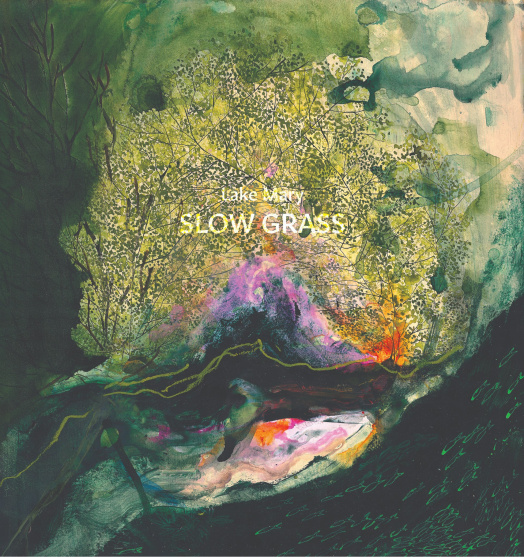Chaz Prymek, der mit seinem eigenen Projekt Lake Mary bereits dutzende Album veröffentlicht hat und in den letzten Jahren verstärkt als Mitglied der Combo Fuubutsushi in Erscheinung getreten ist, bringt Ende September sein neues Album “Slow Grass” heraus. Das Album enthält einen rund vierzigminütigen Track (auf der LP in zwei Abschnitte unterteilt), bei dem dezentes, gleichwohl immer lebhaftes Fingerpicking die Basis bildet. Der Gesang Patrick Shiroishi, sanfte Streicher, Saxophon, die Geräusche der natürlichen Umgebung und einige weitere Details geben den einzelnen Abschnitten ihr besonderers Gepräge. Der Titel bezieht sich auf die letzten Monate im Leben von Prymeks Hund Favourite, als beide keine Wanderungen mehr unternehmen konnten und einfach vor dem Haus saßen und dem Gras beim wachsen zusahen. “Slow Gras” ist ein Album bei dem die leisen Momente einen wichtigen Faktor darstellen, grobe Vergleiche mit Künstlern wie Richard Youngs, Elephant Micah oder David Åhlén kommen einem in den Sinn. Es erscheint bei Whited Sepulchre Records.
“Chaz Prymek’s oeuvre is staggering. At the age of 35, the Missouri-based guitarist / multi-instrumentalist, composer and improvisor has released nearly two dozen recordings under the name Lake Mary, either solo or in collaboration. And over the course of 2020 and 2021, as part of the Fuubutsushi quartet, he released an acclaimed suite of four seasonal ambient jazz records. There is a spectrum of styles, influences, and effects in the Lake Mary catalogue, but all of it can be characterized by patience and a kind of measured beauty. Often longform, the music of Lake Mary moves within the rather open bounds of what might be called organic ambient or extended studies of American Primitive music. And so it is the case with the utterly graceful Slow Grass. Comprised of one long piece of music totaling 40 minutes, separated into a few movements and split over two sides, this latest offering under the Lake Mary banner prominently features Prymek’s often fingerpicked acoustic guitar. His playing is spare but not without energy, and it moves through billows of violin, saxophone, nearly-transparent synthesizers, field recordings and the sirenic singing of Patrick Shiroishi, who is best known as one of the busiest and most versatile saxophone players in the contemporary American avant garde. (Indeed he also contributes saxophone here.) Somehow both modest and masterful, Shiroishi’s evocative singing calls out from and interweaves with a medium distance, not unlike Richard Youngs on his gentle epic, Sapphie or Sarah Davachi on “Play the Ghost.” Prymek meanwhile occasionally switches to playing with a slide or hammering his guitar like a dulcimer, experimenting, gently and masterfully, not only with the timbre of the guitar, but its narrative effect. The results are pastoral and achingly beautiful. (Ryan Hall)
